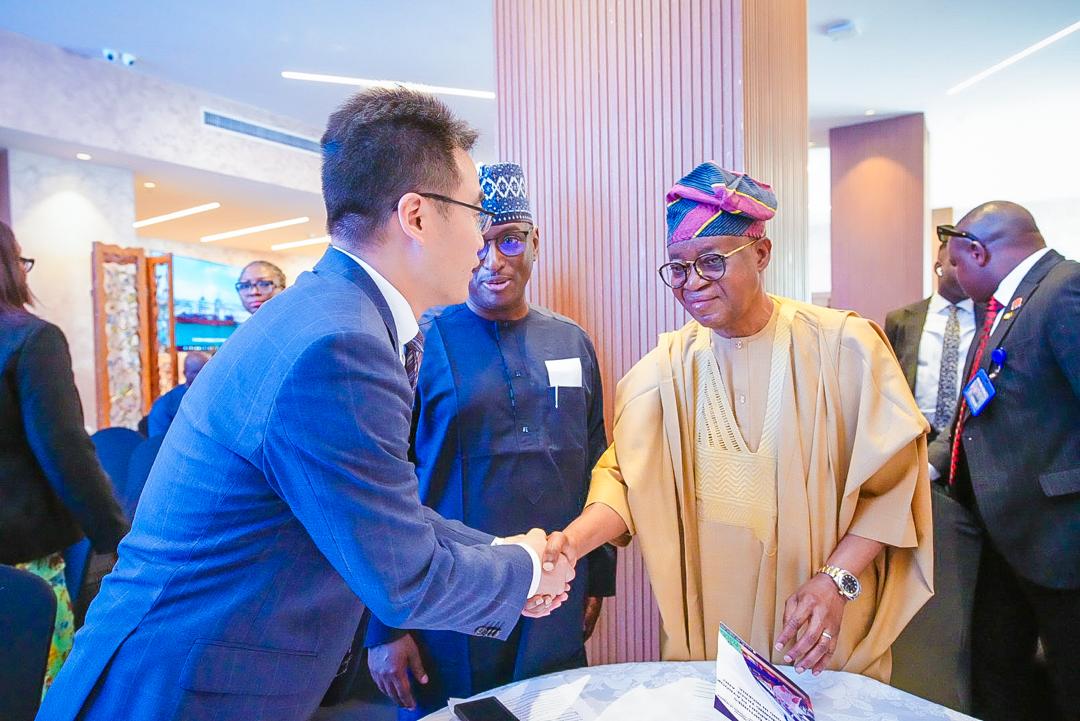The Lekki Deep Sea Port is projected to generate over $200 billion in revenue for Nigeria across its 45-year concession period, according to the Minister of Marine and Blue Economy, Adegboyega Oyetola.
Speaking at a breakfast meeting hosted by the Nigerian Chamber of Shipping (NCS) in partnership with Lekki Port on 19 August in Lagos, the minister highlighted the transformative potential of the port, which he said is already easing congestion in Lagos and other Nigerian ports since the commencement of commercial operations.
Oyetola stated that the world-class infrastructure at Lekki Port not only underscores Nigeria’s growing competitiveness as a regional logistics hub but also presents vast opportunities for investors, service providers, and industry stakeholders.
“The port has become a benchmark for efficiency and innovation,” he said. “The Federal Government, working alongside Lagos State and the private sector, has ensured seamless cargo movement through critical access road infrastructure, restoring investor confidence and facilitating smoother trade.”
He noted that Lekki Port stands on five key pillars: a strategic coastal location with regional market access, a robust public-private partnership model, integrated transport links, supportive trade policies and incentives, and technology-driven operations that prioritise speed, transparency, and efficiency.
The minister added that the success of Lekki Port serves as a blueprint for modernising Nigeria’s port infrastructure.
“We are already replicating this model in the Lagos ports and upgrading the Eastern ports in Onne, Calabar, and Rivers,” he said.
He further revealed ongoing efforts to finalise the Port Community System, a digital framework aimed at unifying port operations across the country.
Managing Director of Lekki Port, Wang Qiang, described the deep-sea port as a “clear example of how bold policy, modern infrastructure, and strategic partnerships can transform trade and catalyse industrial growth.”
Speaking on the theme “Unlocking Opportunities: The Lekki Deep Sea Port Playbook for Transforming Trade and Shipping in Nigeria,” Qiang said the port’s impact could reach $361 billion over its lifespan — a return 230 times greater than the cost of construction.
According to him, the port has already begun transshipment operations — positioning Nigeria to reclaim maritime business previously lost to other West African countries.
He said the facility boasts cutting-edge infrastructure, including Post-Panamax cranes capable of unloading ships twice as fast, automated gate systems, and container scanners that can inspect cargo in under a minute — collectively slashing cargo dwell time and reducing truck turnaround.
Qiang added that the port is expected to generate $201 billion in revenue to state and federal agencies through taxes, royalties, and duties, further boosting its economic significance.
During a panel session, the Managing Director of Nigerian Ports Authority, Abubakar Dantsoho, emphasised the importance of attracting investment to undertake such capital-intensive infrastructure.
“The success of Lekki Port is a testament to what’s possible when public and private interests align for national development,” he remarked.
In his welcome address, President, Nigerian Chamber of Shipping, Aminu Umar described the Federal Government’s establishment of the Ministry of Marine and Blue Economy as “a visionary move” that recognises the central role of maritime trade in Nigeria’s economic prosperity.
“Lekki Port has already begun to shape the narrative around Nigeria’s potential as a regional trade leader,” Umar said. “The NCS is proud to partner on initiatives that unlock opportunities and reposition our nation as a key player in global shipping and logistics.”
Copyright Ships & Ports Ltd. Permission to use quotations from this article is granted subject to appropriate credit given to www.shipsandports.com.ng as the source.
